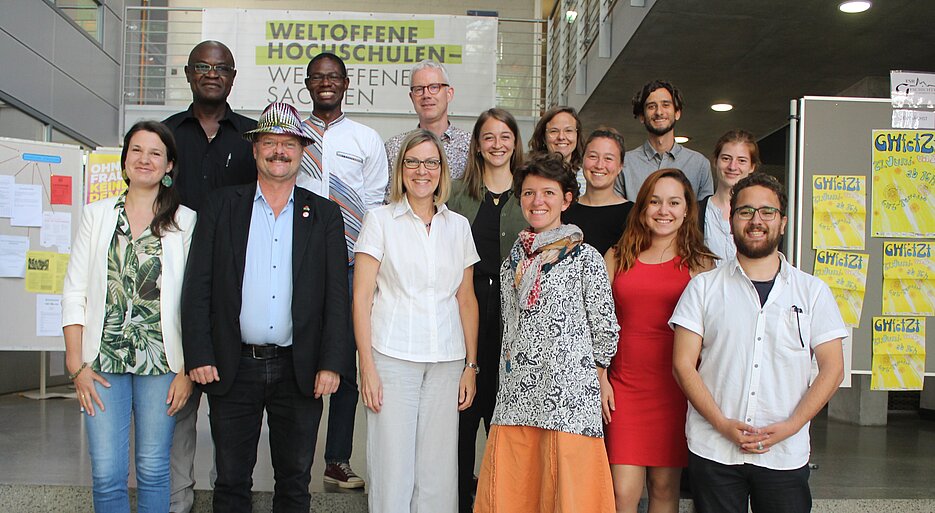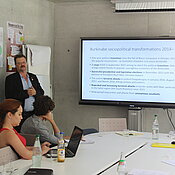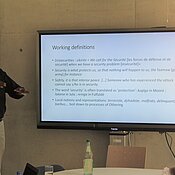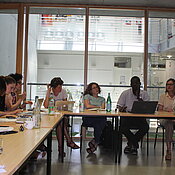Workshop in Leipzig
28.06.2019Am 28. und 29. Juni 2019 fand der Workshop "Local Non‐State Actors as Providers of Security in Africa?" an der Universität Leipzig statt.
The Workshop “Local Non‐State Actors as Providers of Security in Africa?” took place in Leipzig from June 28th to 29th at the Institute of African Studies of Leipzig University. As a part of the activities of the DFG program “Local Self‐governance in the Context of Weak Statehood in Antiquity and the Modern Era” (LoSAM).
On the first workshop day master students presented case studies about non-state policing from across the African continent. Followed by an interesting presentation from Sten Hagberg and Ludovic Kibora about their recent work on security from below in Burkina Faso. After Muriel Côte talked about the self-defense group Koglweogo in Burkina Faso.
The second day, the LoSAM PhD candidates Janneke Tiegna and Nestor Zante presented their research projects about on “Koglweogo and Dozo in Burkina Faso: case of Karangasso‐Vigué” and “Koglweogo and Dozo in Burkina Faso: case of Nobere‐Kaibo”. Melina Kalfelis presented her recent research about Koglweogo in Burkina Faso and gave as an important insight on research methods with an emphasis on ethical questions, which was not only interesting for those doing research on militant groups.
Political crises, violence, security problems, coups d'état and socio-political conflicts between different ethnic groups underline the emergence and expansion of self-defense movements in Burkina Faso and in different African countries. With local initiatives and self-defense involving the community and the municipality, many groups (such as Koglweogo and Dozo), has become influential in the last few years and experienced an exponential expansion, in response to growing insecurity.
Groups that fight against criminality are generally recognised by the public opinion. Some part of the population welcome and support them, claiming that they reduce insecurity in the countryside and bring more safety to the population. But on the other hand, some other people consider that these self-defense groups an emerging militia, abusing the law in their own hands, violating human rights.
During the workshop, researchers and students discussed about different approaches and research methodologies such as participant observation, narratology, interview methods, study cases, research resources, and ethical issues surrounding the research. Hence, the discussion performed in these two days of activities offered original contributions to the study of security as seen ‘from below’ in a quantitative or qualitative analysis and field research for scholars of any discipline.






